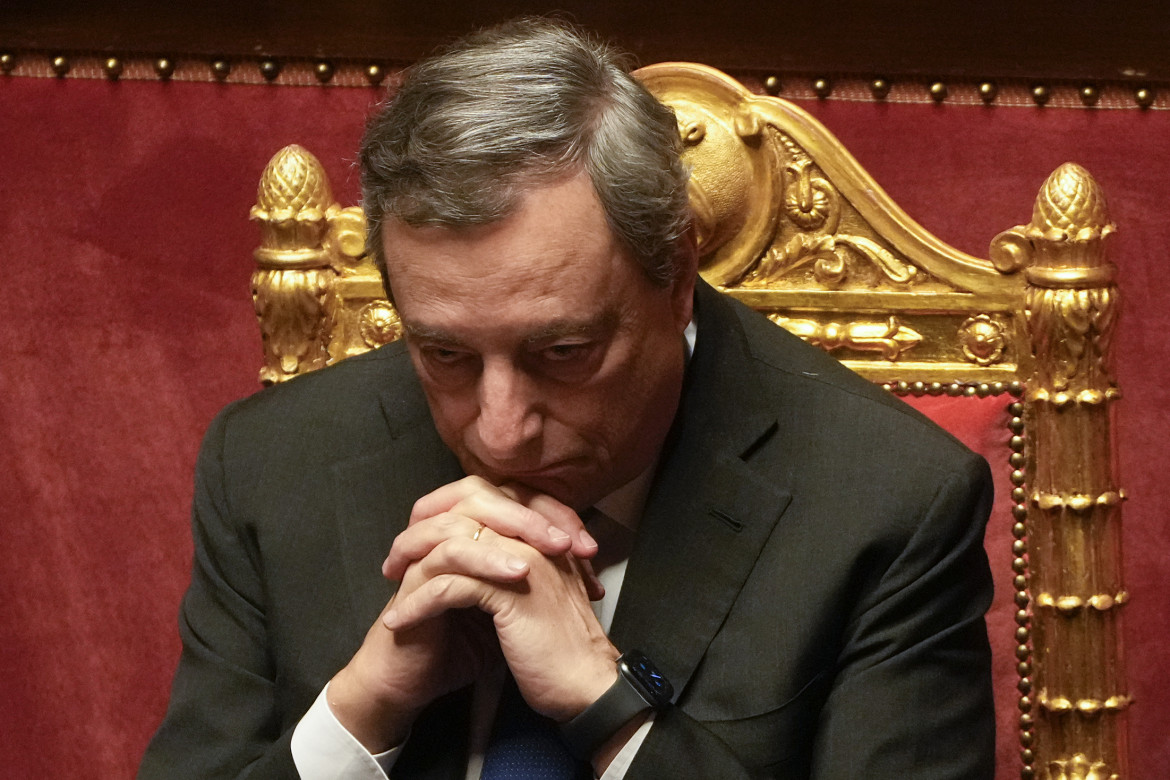Analysis
Draghi’s useless sermons fail to move Brussels, except when it comes to arms
Let's call it Draghi's paradox: the more difficult it is to square this circle, the more the former Council and ECB president is insisting on his philosophy. ‘It's increasingly clear that [the EU] needs to act more and more as if we were one state.’

Mario Draghi is the Zeno of the European Union. Despite the fact that freewheeling vetoes among its member states make it very difficult, if not impossible, to set up a common debt, a single capital market and an investment fund of more than €800 billion per year, Draghi is insisting on his ideas, presented as the only way to bring Europe to an equal footing in the conflicts between the world's great powers, first of all the U.S. and China.
Let's call it Draghi's paradox: the more difficult it is to square this circle, the more the former Council and ECB president is insisting on his philosophy. For him, this is another call to save Europe, divided between nation-state interests and conflicting empires. He first set it out in his “Competitiveness Report,” and he repeated it on Tuesday in Brussels in his usual tone of high urgency.
“It's increasingly clear that [the EU] needs to act more and more as if we were one state,” Draghi said in his keynote speech for European Parliamentary Week 2025. ”The complexity of the policy response involving research, industry, trade and finance will require an unprecedented degree of coordination between all actors, national governments and parliaments, the Commission and the European Parliament.”
When he wrote the Competitiveness Report, “the main geopolitical theme was the rise of China. Now the EU will face tariffs by the new US administration in the coming months, coming weeks, probably. Hindering our access to our largest export market … We may also face policies devised to attract European companies to produce more in the United States based around lower taxes, cheaper energy and deregulation … And if recent statements outline our future, we can expect to be left largely alone to guarantee security in Ukraine and in Europe itself.”
At the same time, he insisted that “since the report was published, the changes that have taken place are broadly in line with the trends that were outlined there. But the sense of urgency to undertake the radical change that the report advocated has become even greater.”
As Draghi was delivering his harangue, the Ecofin economic ministers meeting was under way, also in Brussels. They only agreed on one point: increasing military spending to perhaps create economies of scale – thus, increasing the profits of the weapons industry and cutting welfare. Draghi thinks the latter could be saved through productivity growth, a capital union, and the investment of the “more than €300 billion every year in savings” that we “send overseas because investment opportunities are lacking here,” which would guarantee more competitive rates of return.
No answer came from Ecofin to Draghi on the issue of a “common public debt.” It is an unrealistic scenario, but one that he presents as a necessity for Italy. However, the untouchable “Stability Pact” denies fiscal leeway both for paying missile manufacturers and for funding companies through equity capital and not just bank loans, on Draghi’s often-invoked Swedish model. If common debt is ruled out, then it will have to be the citizens who will line the pockets of U.S. arms manufacturers. This is another of Draghi’s Zenonian paradoxes: he wants to change the “governance” of the EU, but not one of the structural reasons that prevent investment from taking place. He knows that austerity is not going to change. An exception will be set up for arms spending – we’ll have to see how. But social spending, wages and domestic demand will continue to be restrained.
Draghi doesn’t exclude that the futuristic growth he envisions for Europe might be based precisely on the military complex, for which he calls for an increased production capacity. There and elsewhere, such a development depends, in his view, on a comprehensive transformation of the single market for small and medium-sized enterprises and of the financial market, as well as on the removal of bureaucratic tariff and trade barriers among states.
“We are often our worst enemy in this regard. We have an internal market that is of a similar size to that of the United States,” while “the IMF estimates that our internal barriers are equivalent to a tariff of around 45% for manufacturing and 110% for services.”
Originally published at https://ilmanifesto.it/le-prediche-inutili-di-draghi-a-bruxelles on 2025-02-19
